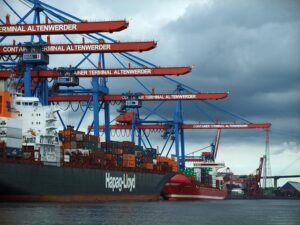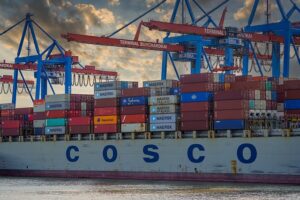The shipping industry is transitioning towards eco-friendliness, leveraging ISO shipping containers to reduce waste and carbon footprints. These versatile containers, ideal for sea, intermodal, and storage uses, are in high demand from businesses seeking green alternatives. The shift promotes sustainable logistics, reduces environmental impact through efficient loading, lower fuel consumption, and optimized storage, while offering cost savings for businesses. Future trends indicate continued adoption of reusable shipping containers, revolutionizing global trade with enhanced eco-friendly practices.
In an era where sustainability is paramount, reusable shipping containers are revolutionizing the logistics industry. This eco-friendly alternative to traditional containers promises significant reductions in carbon emissions and waste. This article explores the rise of these sustainable shipping solutions, delving into their ability to minimize environmental impact, while offering businesses cost savings and operational efficiencies. We also gaze into the future of sustainable logistics, where shipping containers play a pivotal role.
- The Rise of Eco-Friendly Shipping Containers
- How Containers Reduce Carbon Footprint
- Benefits for Businesses and the Environment
- Future of Sustainable Logistics with Containers
The Rise of Eco-Friendly Shipping Containers
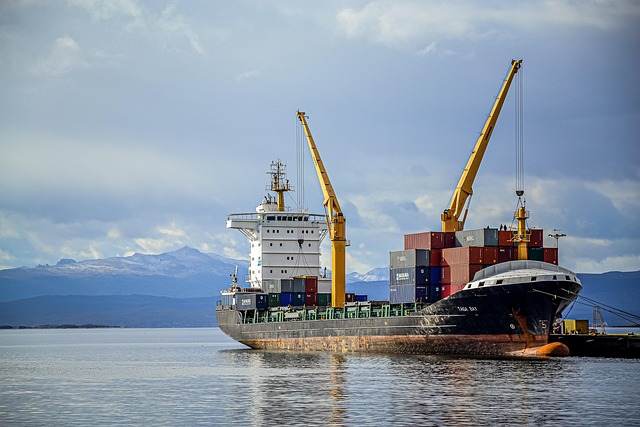
The shipping industry has witnessed a significant shift towards embracing eco-friendly practices, and at the forefront of this transformation are reusable shipping containers. These robust, versatile boxes have long been a cornerstone of international trade, facilitating the transport of goods across lands and seas. However, their traditional role in contributing to environmental degradation is now being challenged by a growing demand for sustainable solutions.
Reusable shipping containers, including ISO shipping containers, offer a range of benefits over their single-use counterparts. They can be used for various purposes beyond initial sea shipping, such as intermodal transport and storage at depots. With proper leasing and rental services from reliable suppliers like manufacturers and distributors, businesses can opt for these green alternatives. This shift not only reduces waste but also minimizes the carbon footprint associated with traditional cargo shipping containers, contributing to a more sustainable shipping container logistics ecosystem.
How Containers Reduce Carbon Footprint
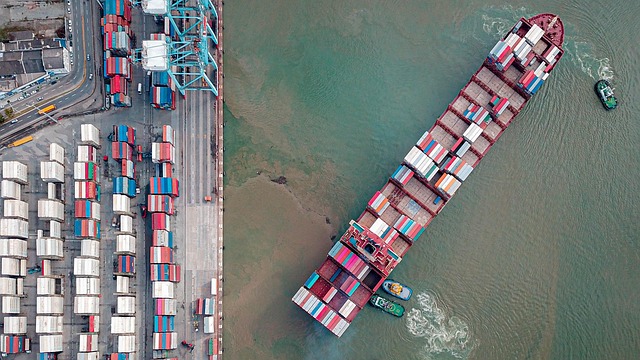
The widespread adoption of reusable shipping containers has a profound impact on reducing the carbon footprint associated with international trade and logistics. These robust intermodal shipping containers, such as ISO shipping containers, offer significant environmental advantages over traditional wooden or flimsy alternatives. By promoting sustainable shipping practices, they play a pivotal role in minimizing the ecological impact of cargo transport.
When compared to the manufacturing, maintenance, and eventual disposal of single-use containers, reusable options prove more eco-friendly. Sea shipping containers, with their standardized dimensions and capacity, streamline loading and unloading processes at ports and reduce the fuel consumption required for transportation. Furthermore, the efficient storage solutions offered by these containers in shipping container depots and terminals cut down on space waste, optimizing land use. The shipping container industry trends lean heavily towards sustainable practices, with manufacturers like leading suppliers focusing on producing more environmentally friendly products, including accessories and modifications that enhance their longevity and efficiency.
Benefits for Businesses and the Environment
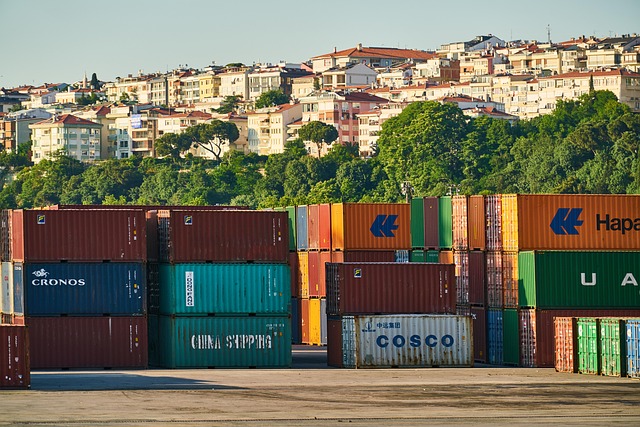
Reusable shipping containers offer a multitude of benefits for businesses and the environment alike. One of the primary advantages for businesses is cost savings. By adopting intermodal shipping containers, companies can reduce their reliance on single-use packaging, lowering material costs significantly. These versatile cargo shipping containers are designed to withstand multiple trips, making them an economical choice for long-term use. Furthermore, they provide efficient storage solutions, allowing businesses to maximize space and optimize inventory management.
From an environmental perspective, the use of sea shipping containers promotes sustainability in several ways. They reduce waste by eliminating the need for frequent manufacturing of new containers, thereby minimizing the carbon footprint associated with production. Shipping container logistics also facilitate faster and more seamless transport, reducing emissions from delayed shipments. The ISO shipping container industry is witnessing trends towards innovation, including modifications and accessories that enhance functionality and durability, further contributing to eco-friendly practices in global trade and transportation.
Future of Sustainable Logistics with Containers

The future of sustainable logistics is being reshaped by the growing adoption of reusable shipping containers. These intermodal shipping containers are revolutionizing sea shipping and cargo transportation, offering a more eco-friendly alternative to traditional methods. By promoting efficient and versatile storage shipping containers, the industry is reducing waste and minimizing environmental impact.
With their robust construction and standardization through ISO regulations, these containers provide reliable and cost-effective solutions for various applications, from short-term storage to long-distance transport. The shipping container industry trends point towards increased demand for rented or leased cargo shipping containers, allowing businesses to flexibly adapt their logistics without the burden of ownership. This shift not only benefits the environment but also enhances overall shipping container logistics, making it a key component in shaping a greener future for global trade and transportation.
Reusable shipping containers are not just transforming the logistics industry; they’re a vital step towards a greener future. By promoting eco-friendly shipping practices, these containers significantly reduce carbon footprints and offer numerous benefits for both businesses and the environment. As we look ahead, the future of sustainable logistics with reusable containers appears promising, setting a new standard for efficiency and sustainability in global trade.


